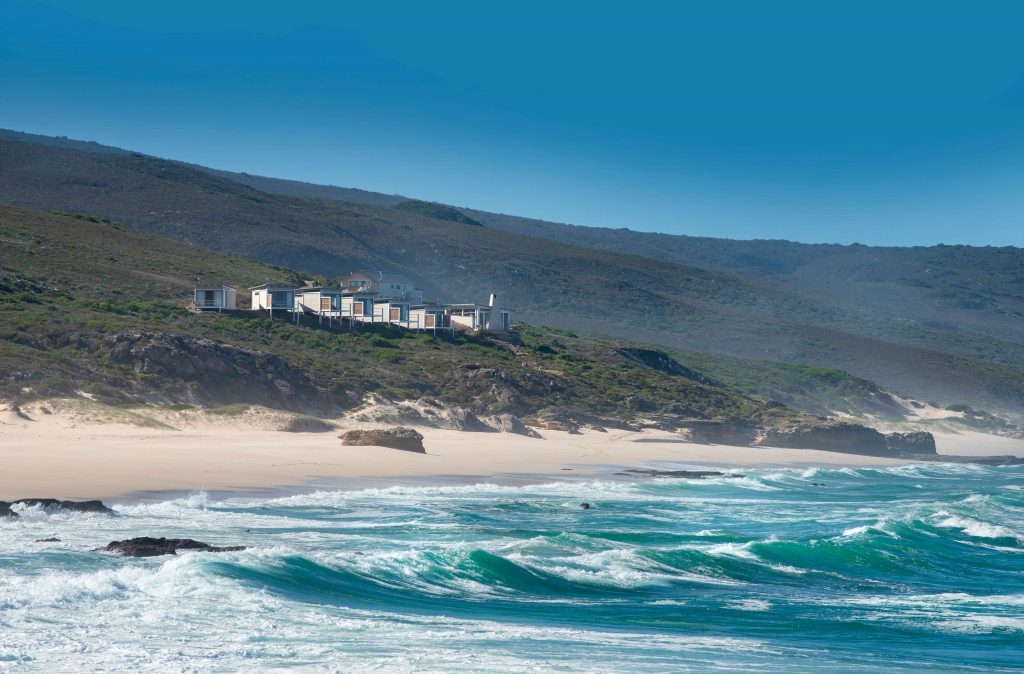Financial Mail Travel
Bush Tactics
Waves wash the stretch of sunset pink sand. There’s the lap, lap, lap of moon-driven water and the skin-prickling cry of a curlew in the dusk – and perhaps the clink of the former president’s whisky glass, set on stone. It’s going to be a long night; speeches like this don’t write themselves and there’s much to be decided before the whirling heavens turn to light and it’s time to return to the city.
“I had long inward discussions with myself,” former president FW de Klerk told a documentary-maker about that time at his retreat, Lekkerwater, in lonely De Hoop. Something crystallised there in that lovely place of whales. De Klerk went back to Parliament on 2 February 1990 and gave his “Quantum Leap” speech, in which he finally unbanned the ANC and other parties and announced Nelson Mandela’s release.
Mandela, in turn, headed to Londolozi three months after his release and spent time there, gathering himself to face the demands of leadership. (Boyd Varty, then seven, describes family memories about Mandela’s visits in his book Cathedral of the Wild, including the time the president had to get back to Codesa talks urgently after the right-wing rammed a Viper through the windows of the negotiation venue).
De Klerk also took his MPs to D’Nyala, a government-owned game reserve, to “test” their taste for change in December 1989. He’d already taken Margaret Thatcher to Mala Mala to discuss his ideas about constitutional transformation. All of which points to how looking for solutions away from the usual pomp, ceremony and hierarchies of the working world can be a wise decision.
Taking colleagues on eco-escapes to strategise, shift gears and build connections impossible to contemplate in a boardroom can have obvious benefits. Safari entrepreneur Colin Bell, co-founder of Natural Selection – which has just opened a formidably beautiful getaway for families and business people on the site of FW’s old country retreat – says that nature has an extraordinary ability to “clear clutter” and open up the space for good business decisions. “You’re taking everybody out of their comfort zones and into environments that are stimulating, invigorating, beautiful,” Bell says. “There’s this extraordinary ability to communicate on a different level. Your creative juices start to flow and your results and strategies are so much more different and powerful.”
A story about using nature to aid business dates back to when he was a CEO of another safari company and the 9/11 attacks had just taken place in the US. “We took eight of our top people canoeing in Mana Pools,” Bell says. Part of the aim was to break with the oppressive news environment. “The second part was to come up with a strategy around how to come out of that terrible period and handle the new world that was about to hit us. We’d never have been able to do that if we’d all sat around a table in the city somewhere.”
Business to wilderness takes many forms. There are more extreme versions, such as Bear Grylls survival-style camps. But holding conferences, incentive breaks or team-building events in precious natural places can turn work into play. South African lodges, from top-end Phinda in northern KwaZulu-Natal to luxury options like Kapama near the Kruger National Park, provide meeting rooms and conference facilities. Kapama has hosted doctors on tour, corporate incentive groups, and product launches; Nambiti in KZN has spoiled senior management teams on incentive trips, ophthalmic surgeon groups, financial and insurance groups and car dealerships. “If you take people to the bush, they open up,” says Nambiti chairperson Clarke Smith. “It wakes up the senses. It allows people to have their eyes opened to possibilities, to think more holistically. It’s no longer about your office, or your piece of paper. By reawakening your natural pathways and instincts, people reconnect with what’s meaningful.” Also, he adds, “if you want to sell something to someone, sell it to them in the bush”.
Bush experiences can also teach life and leadership lessons, and top-end specialists offer focused experiences. The Lead with Humanity Network offers seven-day, multidimensional leadership development experiences that include time in a top private reserve (Phinda again); core clients are international business schools. And Boyd Varty’s immersive Track Your Life retreats explore such lessons as following one’s own path. Speaking in a podcast, he’s described how watching wild dogs go from bonding (“the bond is primary”) to playfully moving through the bush alert to possibilities and to full attention during the hunt, can, for example, teach one much about achieving objectives.
A former senior partner at a European management consulting firm and current dean of a business school in the US, Scott Beardsley travels regularly to destinations such as Phinda, Londolozi, Serengeti under Canvas, and Ngala for business and leisure. On holiday, he finds such safaris “an incredible source of renewal and personal rejuvenation”. On business, they’re excellent locations for senior partner team building,
or strategy development.
“Road warriors have high expectations and want to not worry about logistics and what they eat,” says Beardsley. “The quality of the service, lodging and personnel is outstanding. The settings provide detachment from the day-to-day grind, allowing colleagues to truly be together and focused. The adventure component – seeing cheetah running at full speed, or lions hunting buffalo at sunset – also provides memories for a lifetime. As such, eco-destinations are very special and have an impact on multiple levels. You can have incredible adventures, yet build a team and get business done.”
At a less luxurious level, Hammer Live Brands, an agency with clients ranging from Burger King to Sanlam, recently took a team to a remote spot in Bainskloof before an intense patch of work. “There’s a unifying force in nature,” says MD Howard Ross-Simms. Getting away from the “synthetic sense of connection” created by technology and back to a more basic lifestyle “immediately forces us to slow down and be more mindful and examine the connections with the people around us.” Escaping to nature also fits within the larger company ethos. Its teams are task-oriented and not permanently office-bound, but executing projects is very demanding. Eco-getaways bond teams in invaluable ways – something that Ross-Simms believes “can be as important as the strategy that comes out of the event.
“You can’t build a business if you’re just sitting in a cement building,” he says. “It doesn’t work that way anymore.”






 Sign-up and receive the Business Media MAGS newsletter OR SA Mining newsletter straight to your inbox.
Sign-up and receive the Business Media MAGS newsletter OR SA Mining newsletter straight to your inbox.